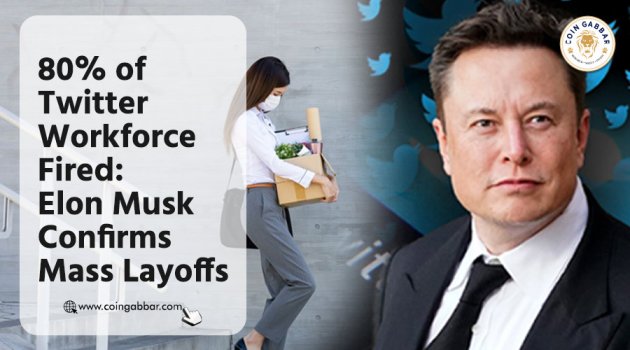
Elon Musk, who took over Twitter after a $44 billion takeover in October last year, has confirmed that the company's workforce has been reduced by over 80%.
In an interview with BBC on Twitter Spaces, Musk stated that out of the approximately 8,000 Twitter employees at the time of the acquisition, only around 1,500 remain employed with the company.
When asked about the process of firing that many people, Musk admitted that it was "not fun at all" and that it could be a "painful" experience. He also revealed that he did not personally fire everyone, as it was not feasible to talk with thousands of people face-to-face.
This significant reduction in the Twitter workforce follows multiple rounds of layoffs carried out by Musk since taking over the company. While the move is seen as controversial by some, it remains to be seen how it will impact the future of the social media platform under Musk's leadership.
The reduction in the workforce at Twitter under Elon Musk's leadership may have both positive and negative effects on the platform in the long run, especially as AI becomes increasingly central to social media.
On the one hand, a leaner workforce could potentially lead to greater efficiency and faster decision-making, especially if AI technologies are implemented to automate certain tasks. This could help Twitter to keep up with other social media platforms that are already making use of AI to optimize their services.
On the other hand, the reduction in human resources could lead to a lack of diversity and expertise, which could limit the platform's ability to innovate and respond to new challenges. This is especially true in the realm of AI, where a range of specialized skills and perspectives are necessary to develop and implement effective solutions.
Overall, it remains to be seen how the reduction in Twitter's workforce will play out in the long run, especially as AI continues to play an increasingly important role in social media. It will be important for the company to strike a balance between efficiency and expertise, and to stay abreast of new developments in AI as they emerge.
Also, Read - Hong Kong's ZA Bank to Offer Crypto Account Services

Pooja Lodwal is a skilled crypto writer with three years of experience in blockchain and digital currencies. She simplifies complex topics, making cryptocurrency easy to understand for all readers. Whether it’s Bitcoin, altcoins, NFTs, or DeFi, she breaks down the latest trends in a clear and engaging way. She stays updated on market news, price changes, and emerging developments to provide valuable insights. Her articles help both beginners and experienced investors navigate the ever-changing crypto landscape. Pooja believes in blockchain’s potential to transform the future of finance and is passionate about sharing her knowledge. Her writing is simple, informative, and accessible, ensuring that even newcomers can grasp key concepts with ease. By breaking down complicated terms, she makes learning about crypto enjoyable. Through her work, Pooja continues to educate and inspire readers, helping them stay informed about the exciting world of digital assets.
1 month ago
NFT news
2 years ago
p
2 years ago
nice
2 years ago
The difference between those who succeed and fail at crypto is knowledge. Contact Crypto Guru and manager of the most sort after crypto Investment platform Mrs. Fridolin on Insta✅Gram🚀 @Charlotte_Fridolin.
2 years ago
Thank you Mrs BelindaFx for sticking to your word, i appreciate your guidance on making profits for 2 weeks now. For fast trading signals and Guidance on all crytpo profits. Contact @BELINDA_GASPARDFX on I_G to get started.
2 years ago
🚀The world is fast changing and Bitcoin is making good waves and more profit,i recommend Mrs BelindaFx you can make fast profits through her Top notch investment PLATFORM , Contact @/BELINDA_GAS✅PARDFX on I_G/ to get started
Her Investment platform is Top notch and highly professional. Contact her I_G for Proof
2 years ago • Alva Knight